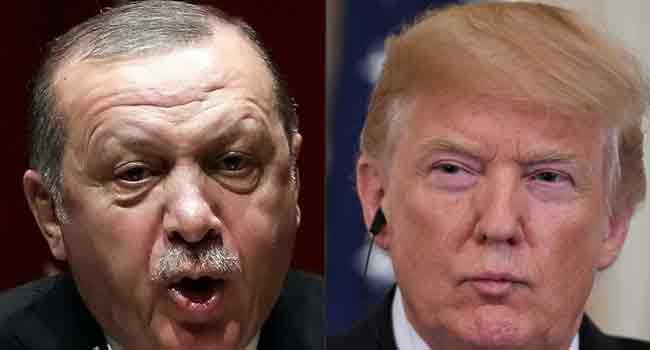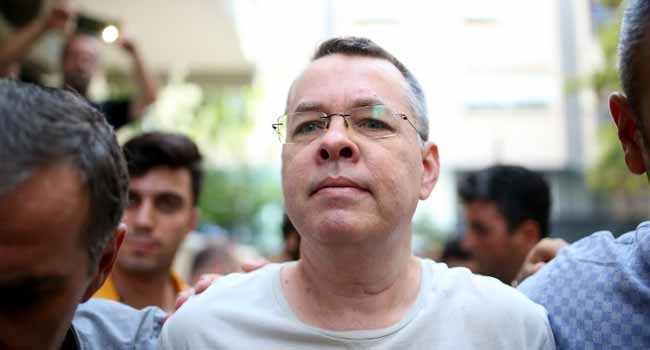
Relations between the United States and Turkey, key allies within NATO, have become increasingly troubled since the re-election of President Recep Tayyip Erdogan in June.
The two countries are in disagreement over the Syria conflict and over the fate of Turkish preacher Fethullah Gulen, who is in exile in the US and whose extradition Ankara has requested over his alleged role in the failed July 2016 coup.
Cool reception
On June 24, 2018, Erdogan wins the presidential election at the first round, with 52.6 percent of the vote. His victory enhances his power, the vote marking the passage from a parliamentary to a presidential system where executive power is concentrated in the hands of the head of state.
“We encourage Turkey to take steps to strengthen democracy,” White House spokeswoman Sarah Sanders says the next day.
“We’re working to set up a call between the president and the president of Turkey to reaffirm our strong bond,” she says.
The State Department says it respects the election result.
‘Total disgrace’
On July 18, ties take a turn for the worse when a Turkish court orders an American pastor, Andrew Brunson, held for almost two years on terror charges, to remain in prison.
Trump urges Erdogan on Twitter to free him, describing his continuing detention as “a total disgrace”.
Brunson, who has lived in Turkey for 20 years and has been detained since October 2016, is accused of assisting Gulen’s network and the outlawed Kurdistan Workers Party (PKK). Both Ankara and Washington list the PKK as “terrorist”.
Brunson is also accused of spying for political and military ends.
He denies all the accusations.
On July 20, Washington refuses Erdogan’s proposal to exchange Gulen for the pastor.
On July 25 he is moved to house arrest.
“We welcome long overdue news…but it is not enough,” US Secretary of State Mike Pompeo says on Twitter.
A day later Trump demands Turkey free the pastor “immediately”, warning the United States is ready to impose “large sanctions” against Turkey.
Several days later Erdogan accuses Washington of showing an “evangelist, Zionist mentality”.
Sanctions
On August 1 the United States announces sanctions against the Turkish interior and justice ministers, who they accuse of having played a major role in the arrest and detention of the pastor.
On August 4 Erdogan says Ankara will freeze the assets in Turkey of the US ministers of “justice and interior”. The identity of the ministers concerned is not clear.
‘Economic war’
On August 10, Trump announces he has doubled steel and aluminium tariffs on Turkey to 50 percent and 20 percent respectively. “Our relations with Turkey are not good at this time!” he says on Twitter.
The Turkish lira plummets, losing some 16 percent of its value against the dollar in one day.
Speaking of “an economic war” Erdogan calls on Turks to support their struggling currency by exchanging any foreign money they hold for the Turkish lira. “It is a national fight,” he says.
‘New allies’
On August 11 Erdogan warns that Ankara will look for “new friends and allies… unless the United States starts respecting Turkey’s sovereignty.”
“It is wrong to dare bring Turkey to its knees through threats over a pastor.”
“Shame on you, shame on you. You are exchanging your strategic partner in NATO for a priest.”
Plot
On August 12 Erdogan says the crash of the lira was a “political plot”.
“With God’s permission we will overcome this,” he says.
On August 13 he accuses the United States of seeking to stab Turkey “in the back”.
AFP


